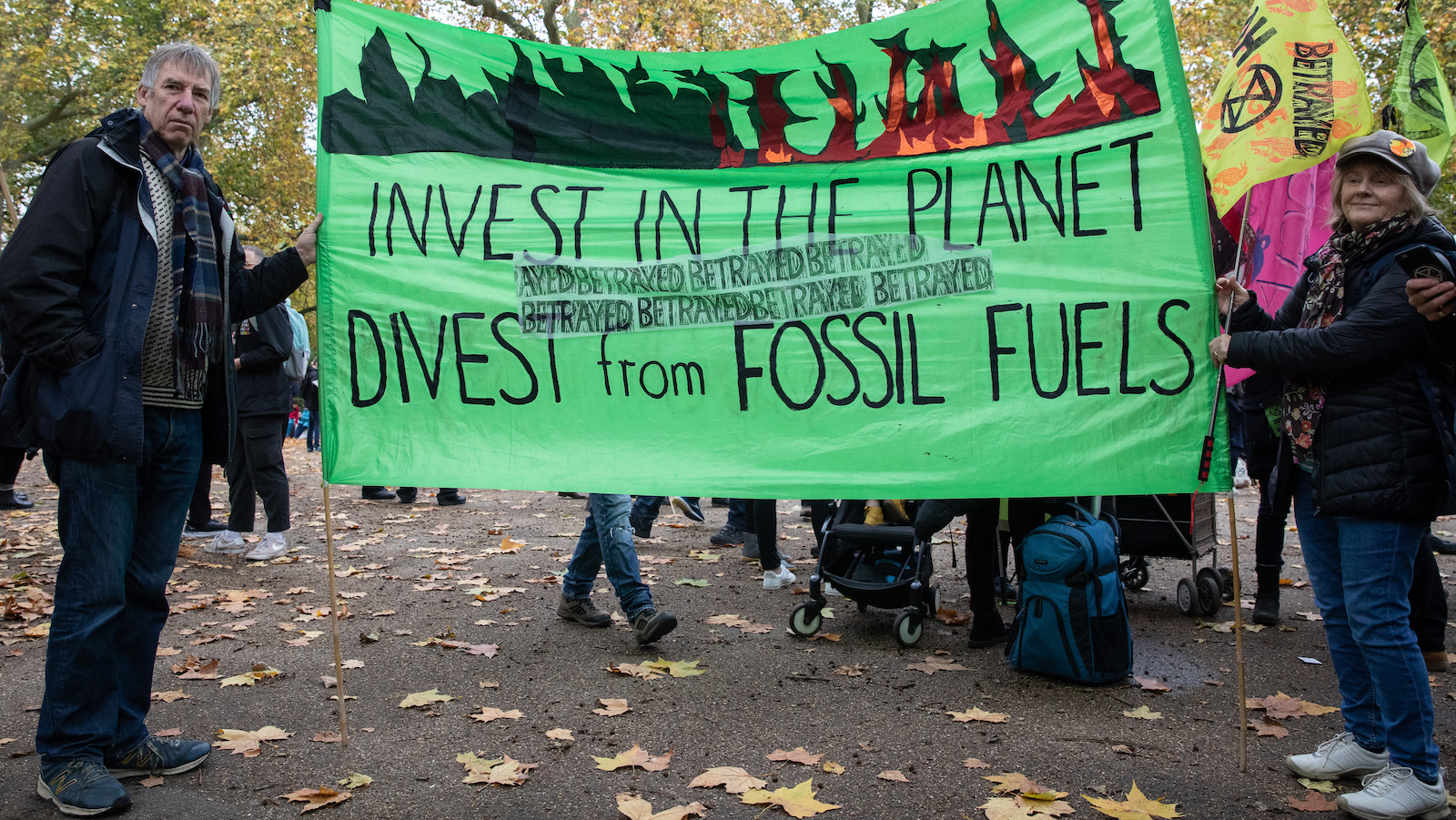For more than a decade, students have been begging their universities to stop investing in oil and gas companies. In 2019, protesters stormed the field of a Harvard-Yale football game at halftime, yelling, “Hey hey, ho ho! Fossil fuels have got to go!” Hundreds of schools have now taken steps to divest (including Harvard and, at least in part, Yale), and many campus climate activists are moving onto the next phase: calling on schools to end their ties with fossil fuel money altogether, rejecting grants and other funding.
According to a new study published on Thursday in the peer-reviewed journal WIREs Climate Change, these activists have good reason to suspect that oil money might influence academic research. It’s the first comprehensive look at the extensive ties between Big Oil and universities, uncovering hundreds of instances in which fossil fuel funding may have led to conflict of interests for researchers in the United States, Canada, the United Kingdom, and Australia.
The scale of influence is huge, involving thousands of partnerships at hundreds of universities, according to Jennie Stephens, a co-author of the paper and a professor of climate justice at Maynooth University in Ireland. “We think of universities as for the public good, advancing knowledge for better futures for all of us,” Stephens said. “Whereas I think the scale and scope of influence of the fossil fuel industry on higher education shows that some of that is being distorted toward private sector interests, and away from the public interest.”
The problem goes beyond funding university research centers and academic posts. Fossil fuel industry executives sit on schools’ governing boards, sponsor scholarships and conferences, and seek to influence courses and curricula. By forging partnerships with universities, oil companies gain credibility, chances to recruit future employees, and a way to subtly guide the conversation about how to address climate change toward their preferred solutions, the study shows.
Though the full extent of this funding remains unknown, since universities are reluctant to disclose that information, an analysis from the think tank Data for Progress last year found that Exxon Mobil, BP, Chevron, Shell Oil, ConocoPhillips, and Koch Industries donated at least $677 million to 27 U.S. universities from 2010 to 2020. The largest recipients identified were the University of California, Berkeley; the University of Illinois at Urbana-Champaign; and George Mason University.
There’s already evidence that such relationships can sway the direction of academic studies. Reports published in 2009 and 2010 from the Massachusetts Institute of Technology, Harvard University, and Stanford University — all of which received significant funding from oil companies — were biased in favor of natural gas compared to independent research, one study published in the journal Nature in 2022 found. Some research contracts allow oil companies to restrict what research gets published and provide them control over academic governing boards.
One case outlined in the new study was the pipeline company Enbridge’s funding of the University of Calgary’s business school (called the Enbridge Centre for Corporate Sustainability before it was renamed in 2014). Enbridge held the right to stop funding the Canadian research center at any time if it was dissatisfied, and the company sought to have a say in staffing and who sat on the center’s board, as well as create opportunities for its executives and clients to meet with researchers.
The study in WIREs Climate Change makes the case that the relationships oil companies have forged with universities are part of a broader effort to delay political action on global warming, a tactic that complements the industry’s history of sowing doubt about the science and lobbying to prevent climate-friendly legislation. Fossil fuel funding also tends to skew research toward the industry’s preferred technological solutions, such as carbon capture and storage, and away from phasing out oil and gas, according to Stephens.
“The industry research is not necessarily directly impacting the integrity of specific research studies,” she said. “It’s more orienting academic research towards certain kinds of responses to the climate crisis, which are really not transformative at all, and they’re actually reinforcing the status quo.”
Funding universities has long been a strategy for unpopular industries, such as pharmaceutical and junk food companies, to improve their reputation and help generate research that casts their products in a more favorable light. In the late 1970s, a manual for industries hoping to avoid regulation advised “co-opting” academics, either by hiring them or giving them “grants and the like.” It warned that the effort “must not be too blatant, for the experts themselves must not recognize that they have lost their objectivity.”
Oil companies have been using the strategy for decades. An internal memo from the American Petroleum Institute in 1998, for example, advised building relationships with scientists whose research aligned with the trade group’s position to build a case against climate action. The oil company BP has funded Princeton University’s Carbon Mitigation Initiative for two decades, often funneling more than $2 million into the program each year. In May, an email uncovered in a congressional investigation showed a BP executive in 2020 celebrating the “Princeton relationship” as “becoming increasingly synergistic (as of course we had planned!).”
While anecdotes are rampant, prying more funding information out of universities can require intense effort. One of the authors of the new study, Emily Eaton, ran into resistance when she asked the University of Regina, where she works, to disclose its funders, and eventually ended up winning a lawsuit against the Canadian university.
“It’s surprising to me how fossil industry funding of universities remains shrouded from public view,” said Douglas Almond, a professor of economics at Columbia University who has studied how this money can warp academic research, in an email.
There are growing efforts to fight the fossil fuel industry’s influence at universities. Nearly 1,000 researchers have signed a letter asking universities in the U.S. and U.K. to stop accepting funding from oil and gas companies. And at least some universities are responding. In 2022, Princeton voted to “dissociate” from 90 fossil fuel companies, ending a relationship with Exxon (though BP continues to fund some of its climate work).
“We really need more public funding that focuses on research for the public good when it comes to climate, not research that is clearly aligned with the interests of a private sector, extractive industry,” Stephens said.





